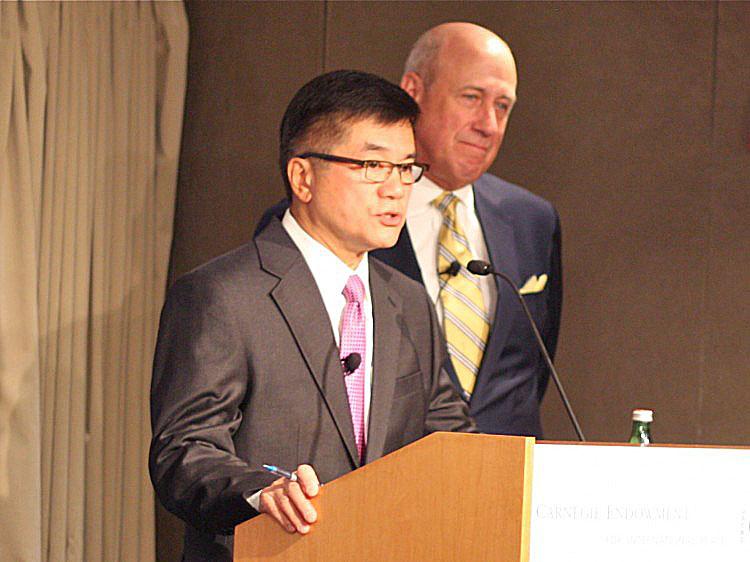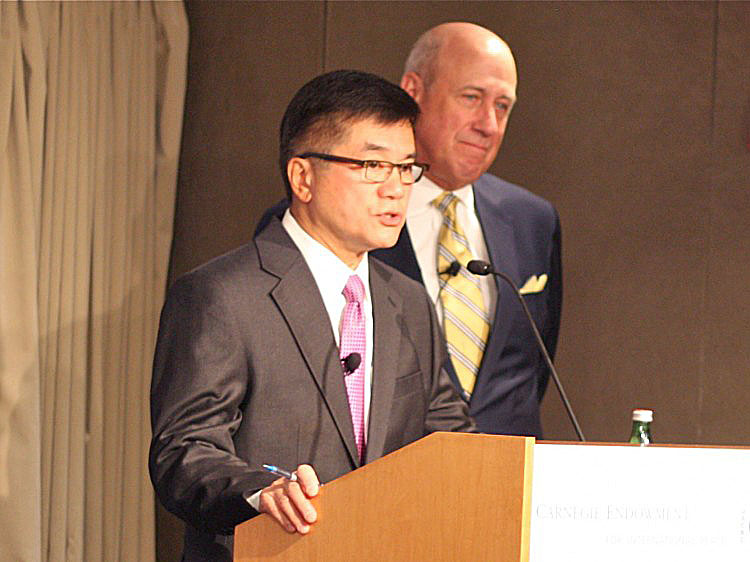WASHINGTON—The Chinese regime should stop manipulating its currency and stealing the intellectual property of American companies, said Gary Locke, the U.S. Ambassador to China in remarks made here on Thursday. Or, that’s what he might have said if he was speaking frankly.
What he actually said was that “In our economic relationship, we believe that turning our rhetoric into reality requires fairness in both policy and practice. That means guaranteeing a level playing field for healthy competition between U.S. and Chinese firms… Fairness means ending unfair distorting currency practices and improving protections of intellectual property to allow innovation to thrive.”
Later in his prepared remarks, Locke said that the United States and China should “talk frankly to each other” about the differences they have.
It was Locke’s first address since becoming ambassador, “one of the most challenging and interesting jobs in the world,” as described by Douglas H. Paal, the moderator of the event and vice president for studies at the Carnegie Endowment for International Peace, where the discussion was held.
The hedged language, even when calling for frank talk, was a tangible demonstration of the complexity of the relationship between the two countries. The language also demonstrated the prevailing U.S. diplomatic orthodoxy that the Chinese Communist Party (CCP) does not respond well to criticism. All this while Secretary of State Hillary Clinton, on her recent trip to China, was attacked mercilessly in China’s state-run press.
The remainder of Locke’s speech was devoted to an examination of various other aspects of the relationship, employing platitudes, truisms, and notes of hopefulness and careful disagreement in turn.
“It is natural that we will not always agree. There are issues on which we have very real differences, such as universal human rights and basic freedoms.” Again it was the ability to “talk frankly” that was described as key, despite the failure of the United States to publicly lobby for the release of the many detained civil rights lawyers and others wrongly imprisoned in China.
The United States gets its point across on some matters though. Locke defended the American Embassy’s continued publication of PM 2.5 pollution readings, which has angered Chinese authorities because they say it infringes on Chinese sovereignty. PM 2.5 is a measure of particulate matter in the air of 2.5 microns or less. Constant exposure to concentrations of PM 2.5 at the level found in Beijing is equivalent to “smoking two packs of cigarettes a day,” Locke said. He argued that the embassy’s presentation of this information created a rallying point for Chinese people to demand better environmental protections from the Communist Party.
That is a good example of how the United States can lead opinion, however unwelcome it is to the Chinese regime. The more of that we see, the better.
The Epoch Times publishes in 35 countries and in 19 languages. Subscribe to our e-newsletter.







